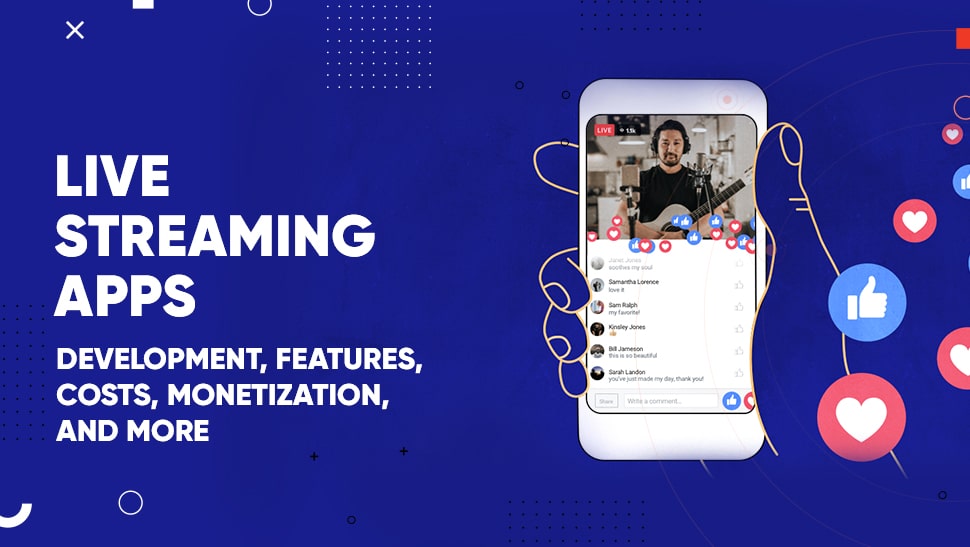Node.js is a cross-platform mobile and web app development environment. Frameworks and toolkits work within this environment. It is a robust technology used for coding the back-end, the server-side of computer and mobile applications.
Node.Js is now most developers’ go-to environment because of its foundation in JavaScript, a popular programming language that helps build the front-end of applications. Node.Js is an extension of this language and when used to its full potential, it has capabilities for full-cycle app development for diverse digital platforms.
If you have a project and you consider a Node.js developer to be the right programming fit, here is a guide to help you make an effective hiring decision.

Hiring Node.js Developers – A Quick Overview
Level of Expertise |
Roles and Responsibilities |
Compensation |
|---|---|---|
Entry level developer |
Beginner in Node.js.– Understanding of JavaScript. |
Hourly Rate:
|
Mid-level developer |
Intermediate Capabilities in Node.js.– In-depth knowledge of Node.js platform |
Hourly Rate:
|
Senior to lead level developer |
Advanced Capabilities in Node.js.– Building NPM packages |
Hourly Rate:
|

Why do companies hire Node.js developers?
Node.js, as mentioned earlier, is a powerful back-end environment. It has a single-threaded nature and is mainly used for non-blocking and event-driven servers.
It is a preferred choice for mobile software development because of its open-source, active ecosystem that is significantly based on JavaScript. For the same reason, Node.js blends well with TypeScript, Haxe and CoffeeScript.
In simplest terms, Node.js development is ideal for projects that are web-based but also need push capabilities. This is possible with Node.js. It allows developers to create web applications where clients and servers can simultaneously initiate communication.
Building onto this communication factor, Node.js is most suited for real-time application development because of its 2-way exchange of information, data sensitivity and least CPU involvement.
Real-time apps are programs that process data and give instant results in a predefined timeframe – milliseconds in most cases. Stock trading platforms, auction marketplaces, smart home managers, and online chat rooms are closest examples of real-time apps.

Source: Node.js

Hiring A Node.js Developer: Assessing Candidates
Hiring a developer, especially considering a particular tech domain is tricky. While you need a technically strong developer, you also need someone who can play in a team, oversee on-going projects, identify issues and contribute in the execution.
Assessing The Technical Expertise of a Node.js Developer
Platform and databases are 2 critical technical factors a Node.js developer must know. To assess their knowledge in the domain, you need to check their portfolio. Secondly, ask them analytical and theoretical questions revolving around these:
1. The Node.js platform
A senior Node.js developer is ideally well-equipped with JavaScript, and has extensive experience working with NPM packages. In simplest terms, a Node.js developer should have sound technical knowledge of modules and databases including:
- HTTP/HTTPS: It is a client-server protocol and the primary factor that helps with exchange of data on the web.
- Path: Path is a dedicated Node.js functionality that helps with manipulation of directories and files.
- Events: This module carries out different events, actions happening on the web during exchange of data.
- Streams: This module helps with information exchange between different protocols.
- Child Processes: This module helps with creating multi-threaded tasks.
When assessing the overall experience in the Node.js environment, consider years of experience, depth of knowledge and interest on augmenting these modules in apps of mid-level to advanced complexity.
2. Databases
While hiring a Node.js developer, you need to assess their understanding and experience of different databases and their families. For example: Redis, Firebase, Mongo-DB, Microsoft SQL, PostgreSQL, MySQL.
Here is what a developer should know about integrating a database:
- Knowledge of NPM packages
- Working with GitHub type repositories
- Choice of database depending on app requirements
- Setting up database architecture
- Monitoring, evaluating, and controlling database performance
- Auditing Views, Stored Procedures, and Data Destructuring
When making decisions for technical knowledge, allocate 65% weightage on platform grip and experience, 30% on database and 5% on other diverse technologies and development experience.
To assess analytical skills on the technical side, you can also ask your prospective developer to reflect on the use cases of Node.js in popular applications like Netflix, LinkedIn, Uber, Figma, Slack, and Asana.

Source: Openjsf.org
Assessing Behavioral and Soft Skills of Node.js Developers
While behavioral analysis during a headhunt is equally important for all professions and job roles, it is of primary essence to development-related jobs. That’s because the core on-job roles are technically intensive, but because Node.js projects are high magnitude in terms of scope, teams can vary from 4-8 members.
Any professional who is part of such teams has to strike the right balance between technical parts of the job and behavioral aspects of the job because of variations in knowledge levels of the team(s).
When hiring a Node.js, here are three most important behavioral aspects to consider:
1. Internal Communication and People Management
Development teams are usually cross-functional, comprising programmers of different aptitudes, testers and QA personnel, dedicated back-end and full-stack coders. These teams often have complex chain of command and reporting requirements.
Therefore, when hiring Node.js developer who’ll take a key position in the team, you need to ensure that the candidate displays an optimal level of work ethics, aligns with company values and is ready to adapt to your brand’s vision.
2. External Communication
Developers working on client-side applications are closely associated with project managers. Often, these developers are required to translate the technical nitty gritty of features to customers. That’s why, you need a member who is good at internal, as well as external communication.
Hiring A Node.js Developer: Options for Appreneurs, SMEs and Large Organizations
You can follow a different hiring model depending on the scope of your project, the location and business hours you operate in, the technical complexity of the app or web project, the portfolio strength you desire and the budget you have allocated for individual employees and teams.
1. Hiring An individual Freelancer or Remote Node.js Developer
This is a preferable option for appreneurs or startups who have initiated an in-house small-scale Node.js project. You can choose to hire a:
- Full-time professional who works onsite with you and receives a monthly salary.
- Freelancer who charges hourly rates and dedicates flexible development hours as per the need of the project.
- Remote developer who works offsite but dedicates a specific shift or no. of hours and receives a fixed monthly salary.
Hiring an individual Node.js developer l is NOT the right choice if you are developing a high-magnitude project for a client. That’s because Freelancers have loose contract terms and they usually charge per hour. Plus, Node.js teams are ideal because of different levels of expertise, and variable roles like developing, reviewing, testing and debugging.
2. Outsourcing A Node.js Project
This option is great for agencies and startups that either have in-house or client-side projects of high magnitude. You can outsource the whole project for a fixed price with upfront payment, flexible installments or subscriptions.
This option allows for convenient project management. All appreneurs have to do is create a project brief, decide on feature specifications, set project milestones, sign an NDA, begin working and monitor deadlines. IT staff augmentation companies usually take up such projects and handle them from discovery stage to debugging and deployment. This seems to be an investment in the beginning that pays for itself in the long run.
3. Hiring A Dedicated Node.js Team
The third option is to hire a fully functional onsite or remote Node.js team with a designer, developer, tester and debugger onboard. This model is slightly different from outsourcing because in this case, you’ll yourself have to lead the project, and monitor its progress till deployment.
These dedicated Node.js teams are ideal for development agencies, enterprise-level corporations and so, they can be expensive. But if you have recurring client-side projects, you can balance the hiring costs and client-side revenues.

How much does it cost to hire a Node.js developer?
Hiring a freelancer for Node.js development can cost anywhere between $20-80+ per hour. Fulltime onsite and remote employees usually demand an average monthly salary of $9,000 and offer mid-level expertise in Node.js development and testing. The more senior profile, higher the salary.
For Node.js teams, different staff members demand different slabs of salaries, but stay close to $9,000 monthly depending on their role and level in the team. But because it will be a team of at least 4 members, you can expect monthly payouts of around $45,000.
Outsourcing Node.js projects can cost between $35,000 – 100,000 depending on the level of development effort and the magnitude of project.

Wrapping Up…
To simplify the shortlisting and hiring process for Node.js developers, Tekrevol recommends you base your decision on technical and behavioral standpoints, while allocating higher weightage to former. Hiring a freelancer is still an easier option, but if you plan to hire a dedicated team or outsource the project, you’ll have to strike the right balance between portfolio, business hours, cost of services, and development timelines.
If you are planning to hire a Node.js developer for your next project, Tekrevol can help you find one who would turn your epic development ideas into successful digital assets. You can choose to outsource your project or let our IT staff consultants match you with the right team.

- Would like to hire a Node.js developer?

 2491 Views
2491 Views November 24, 2021
November 24, 2021









